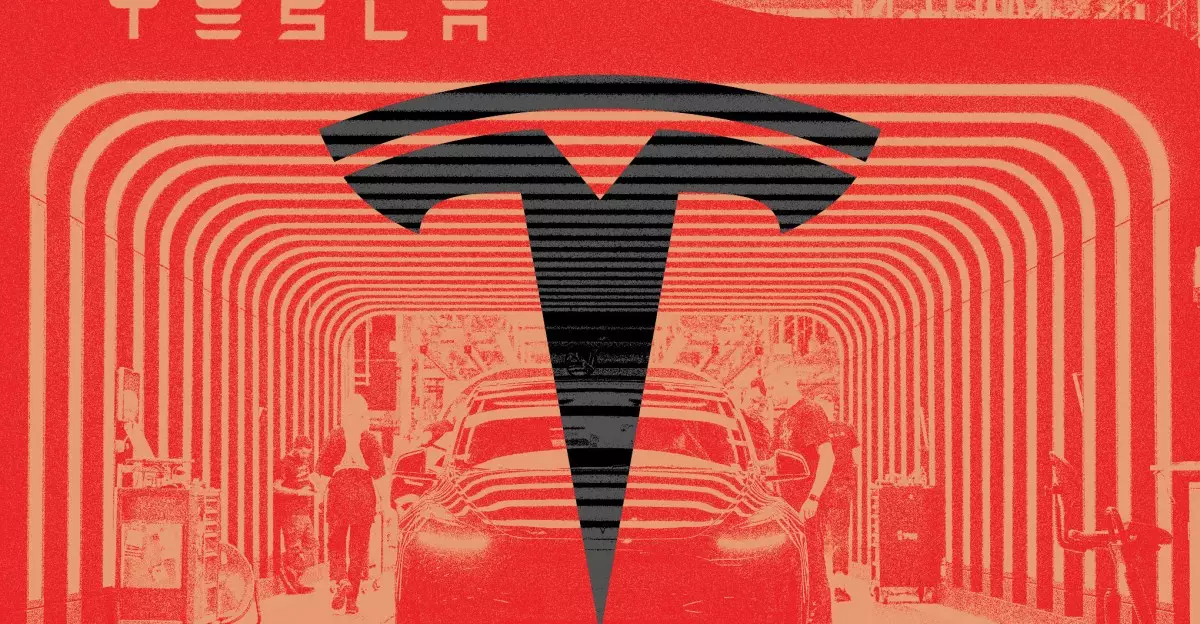Tesla, once hailed as a transformative force in the automotive industry, now finds itself in an alarming predicament, particularly in the European market. Recent sales figures have illuminated a staggering drop of nearly 50% in new vehicle registrations, raising concerns about the brand’s stability and future growth prospects. With only 7,261 new Tesla vehicles registered in April—a sharp contrast to the previous year’s figures—it’s becoming increasingly clear that the company’s recent strategies are falling short. As battery-electric vehicle sales across Europe have seen a significant uptick of 26.4%, capturing 15.3% of the total EU market, the underlying question remains: why is Tesla’s performance diverging so sharply from its competitors?
Failure of the Refresh: Expectations vs. Reality
Tesla recently introduced a refreshed version of its Model Y, a vehicle that had previously garnered immense popularity and served as a foundational model for its European sales. The expectation was that this update would rejuvenate interest and drive sales, propelling the company forward in a rapidly evolving automotive landscape. Instead, the floundering sales figures have been a bitter pill for CEO Elon Musk and his team to swallow. This disappointing outcome isn’t merely a reflection of changing consumer preferences but rather an indication that Tesla is struggling to maintain its competitive edge amidst surging competition from established automakers and emerging Chinese manufacturers who are increasingly capturing market share.
Pressure from Competitors: The Domestic and International Challenge
The unmistakable rise of competition is undoubtedly a pivotal factor in Tesla’s declining sales performance. Traditional automakers, who had previously lagged in the electric vehicle sector, are innovating at an unprecedented pace, releasing new models that often compete on affordability, range, and technology. Meanwhile, Chinese brands are entering the European market with aggressive pricing and robust technology. As these competitors continue to refine their offerings, Tesla’s once-unassailable position is becoming increasingly tenuous, as consumers are presented with a growing array of attractive alternatives.
Political Strife: A Double-Edged Sword
Musk’s recent forays into political alliances have also complicated Tesla’s standing in Europe. His vocal support of controversial political figures and movements has alienated many potential customers who may perceive his actions as misaligned with their values. The backlash against Musk has been palpable; market sentiment towards him has soured significantly, as evidenced by a recent poll indicating that 58% of respondents hold an unfavorable view of him. As Musk attempts to walk the tightrope of corporate leadership and political engagement, the repercussions of his political choices are beginning to manifest in Tesla’s dwindling popularity in key markets.
The Media Hotseat: Brand Reputation on the Line
The fall in Tesla’s sales is further exacerbated by its declining brand reputation. Once celebrated as a paragon of innovation and sustainability, recent surveys reveal that Tesla has plummeted in brand rankings, now ranked 95th among large corporations. This decline in reputation matters in a market where consumer trust can significantly influence purchasing decisions. The disconnect between Musk’s grand ambitions regarding AI and self-driving technologies and the tangible reality of Tesla’s current performance may leave consumers questioning the company’s viability and trustworthiness.
A Path Forward: The Path to Recovery
The question must be asked: how will Tesla navigate this tumultuous landscape? Musk’s assertion during the last quarterly earnings call that sales would rebound once the manufacturing disruptions surrounding the refreshed Model Y are resolved appears overly optimistic. If Tesla hopes to recover its previously dominant status, it must focus not only on enhancing its product line but also on fostering a positive brand image that aligns with its consumers’ evolving expectations. This will require a concerted effort to distance the brand from controversy and rebuild trust—potentially marking a pivotal turning point on Tesla’s road to redemption.
While the challenges ahead are daunting, they also present an opportunity for reinvention. If Musk and his team can find the right balance between innovative aspirations and grounded, responsible leadership, there may yet be a glimmer of hope for Tesla in these uncertain times.

